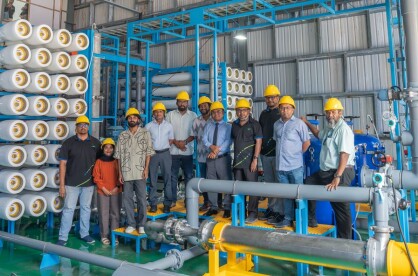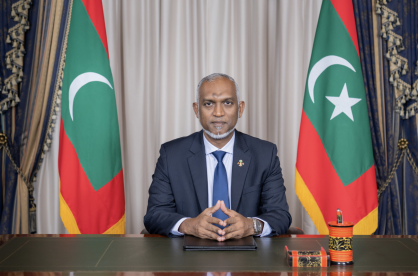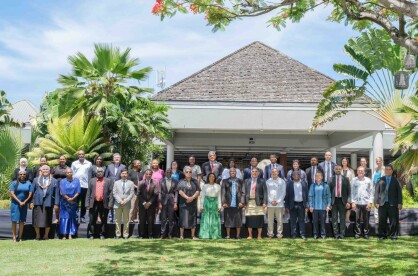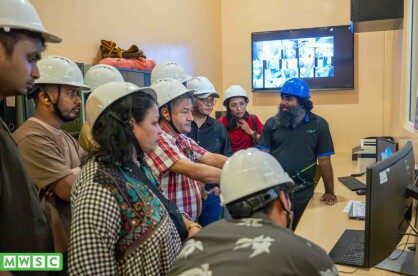The Maldivian government, regardless of the administration in power, has consistently pursued ambitious development goals. From infrastructure projects such as airports and housing to advancements in the health sector, each year's state budget is shaped by a comprehensive vision for national progress. These initiatives are primarily categorized under the Public Sector Investment Program (PSIP), a medium-term development plan designed to prioritize infrastructure projects that drive economic growth and improve public welfare.
While these projects aim to enhance the nation's development and provide better facilities for citizens, a significant number of agreements signed under the previous administration have encountered setbacks. During a recent three-day tour of ten islands in Haa Alif Atoll, President Dr. Mohamed Muizzu revealed that several projects initiated by the former government had stalled, despite receiving substantial advance payments.
Under former President Ibrahim Mohamed Solih's administration, several key PSIP objectives were outlined, including the completion of the Greater Malé Connectivity Project (GMC), a shift in focus from capital-city-centric development to local island infrastructure, the completion of Hanimaadhoo International Airport, and the execution of extensive housing projects. Additionally, plans were made to establish tertiary-level hospitals in five strategic locations across the country.
In 2023, under the former administration, the Maldives government allocated USD 545 million for these PSIP projects. This budget comprised USD 201 million from the national budget, USD 266 million from foreign loans, USD 46 million from international grants, and USD 29 million from the Green Fund. Representing 19.7percent of the USD 2.8 billion state budget, the PSIP included 204 new projects valued at USD 31 million, 311 projects in the tendering phase worth USD 34 million, 479 projects in pre-tendering with an estimated cost of USD 78 million, and 113 completed projects with USD 5 million allocated for retention funding.
The largest portion of the PSIP budget—USD 156 million (28.9 percent)—was designated for transportation infrastructure. This included USD 51 million for the Thilamalé Bridge, USD 60 million for airport development, and USD 30 million for harbour construction. Land reclamation projects received USD 91 million, with USD 18.9 million allocated for Gulhifalhu and USD 11 million for Addu City. Road development accounted for USD 27 million, while an additional USD 1.5 million was allocated for new road construction projects. Other key allocations included:
- USD 48 million for housing projects
- USD 47 million for health infrastructure
- USD 84 million for environmental protection (USD 41 million for waste management and USD 27 million for coastal protection)
- USD 42 million for water and sewerage projects across 158 islands, aimed at achieving universal access to clean water and sanitation.
Despite these extensive allocations and ambitious development plans, many of the projects initiated under the previous administration have either stalled or failed to commence. President Muizzu has attributed these setbacks to multiple issues, including mismanagement in project execution and budget constraints in 2024. According to the President, although the projects were assigned to companies, there was no proper budget allocation for the projects in the 2024 budget, resulting in further delays to these projects. He also highlighted that a single company had been awarded 21 different projects without any visible progress, while numerous other projects—especially in healthcare and water and sewerage—suffered from poor oversight and financial mismanagement.
Additionally, the President noted that many of these contracts were awarded to small and medium enterprises that could not complete them effectively. To address these inefficiencies, the current administration is actively reviewing and cancelling stalled contracts, transferring these projects to state-controlled companies to ensure timely execution. By taking a vigorous approach to the key projects that have been stalled for over a year or more, the Government is not only safeguarding the funds that have already been invested towards these projects by the state but also ensuring that the development efforts do not go to waste. By reassigning stalled projects to new contractors with the capacity to execute them efficiently, the government is taking a much-needed step towards delivering the intended benefits to the public.
As a developing nation, large-scale infrastructure projects are vital for the Maldives' economic growth, especially when it comes to the healthcare sector. Beyond just addressing immediate needs, these projects serve as long-term investments that create jobs, drive industry growth, and enhance the overall quality of life for citizens. By reassessing and restructuring stalled initiatives, the government is not only rectifying past mismanagement but also reinforcing its commitment towards the development of the country.






